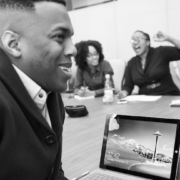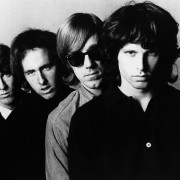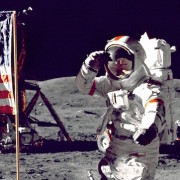Why What You Do Can Be More Compelling Than What You Say
Here’s a true story about how and why people make the decisions they do:
Picking his way through the cramped ballroom, people-filled padded chairs all askew, there was no clear route. Obstacles, however, were not this man’s primary concern. On his face, you could see his mind racing — searching for what he would say once he was in front of the crowd. Few people like public speaking, but this seemed even more torturous than usual. He found his standing spot, turned and faced the crowd.
“I have traveled three hours round trip every day to attend this training. I’ve driven dangerous roads and in heavy traffic. You are a talented and knowledgeable group. I have learned from you, and you have learned from me. And I sure could use the money to help pay for gas. Please, please. Pick me!”
That scene played out in a Calgary persuasion workshop during which I asked three volunteers to vie for a single, crisp $100 bill by convincing the audience to individually award them the money. Whoever made the most compelling case, thus winning the affections of the crowd, walked away with the cash — and the bragging rights.
Participants were allowed to make their case in any way they deem appropriate, with one exception: They couldn’t share the money or materially benefit the crowd in any way (I’ll buy you all drinks!). Adding to the pressure, I gave them just four minutes to develop their case and only 25 seconds to present it.
What would you say if you were in this situation?
This activity mirrors business life today in many ways. You are often in competition with others for the account, the promotion, the project. You must think on your feet and be able to put together compelling arguments fast, and you might not have much time to state your case. Sometimes you need to do all this — especially in peer-to-peer persuasion situations — without offering some sort of material gain. Not an easy assignment, to be sure.
But the most interesting aspect of this workshop activity is not the people vying for the money; it’s the people deciding who will earn the money. You may think that people carefully analyze participants’ arguments, weighing the pros and the cons to rationally decide who gets their votes.
That’s not what’s happening, though. Far from it.
After the three contestants made their case for the $100 bill, I lined up the group for judging. Would the winner be the guy who claimed he risked his life to arrive at the workshop, but essentially just needed the money for gas? Would it be the generous man who stated he would donate the money to a charity? Or, finally, would it be the person who claimed his peers should pick him because he held his own with the group at happy hours?
To determine the victor, I used a timeless and scientific method: the applause-o-meter. When I asked for applause for the most persuasive presentation, the results were absolutely clear. The winner was our hero who needed gas money. He beamed as he received the crisp $100 bill, and the crowed gave him another thunderous round of applause.
During the luncheon that immediately followed the workshop, I did what I always do: I inquired with those at my table about the contest and what they found so compelling about the winner’s argument. As usual, the comments were enlightening:
“We voted for him because he’s been so helpful ever since the start of this workshop.”
“He’s always willing to run a sales simulation or brainstorm an idea, so I like him.”
“He’s so funny. He had me cracking up all morning.”
Our winner obviously created a halo effect with his peers during the workshop — doing everything he could to find a positive entry point with people who ultimately decided to award him with cold, hard cash.












Leave a Reply
Want to join the discussion?Feel free to contribute!